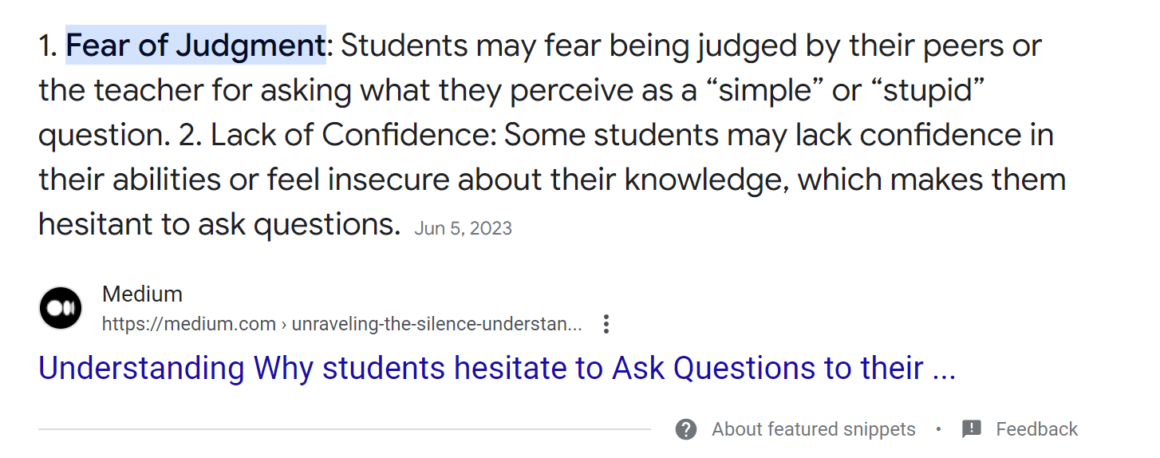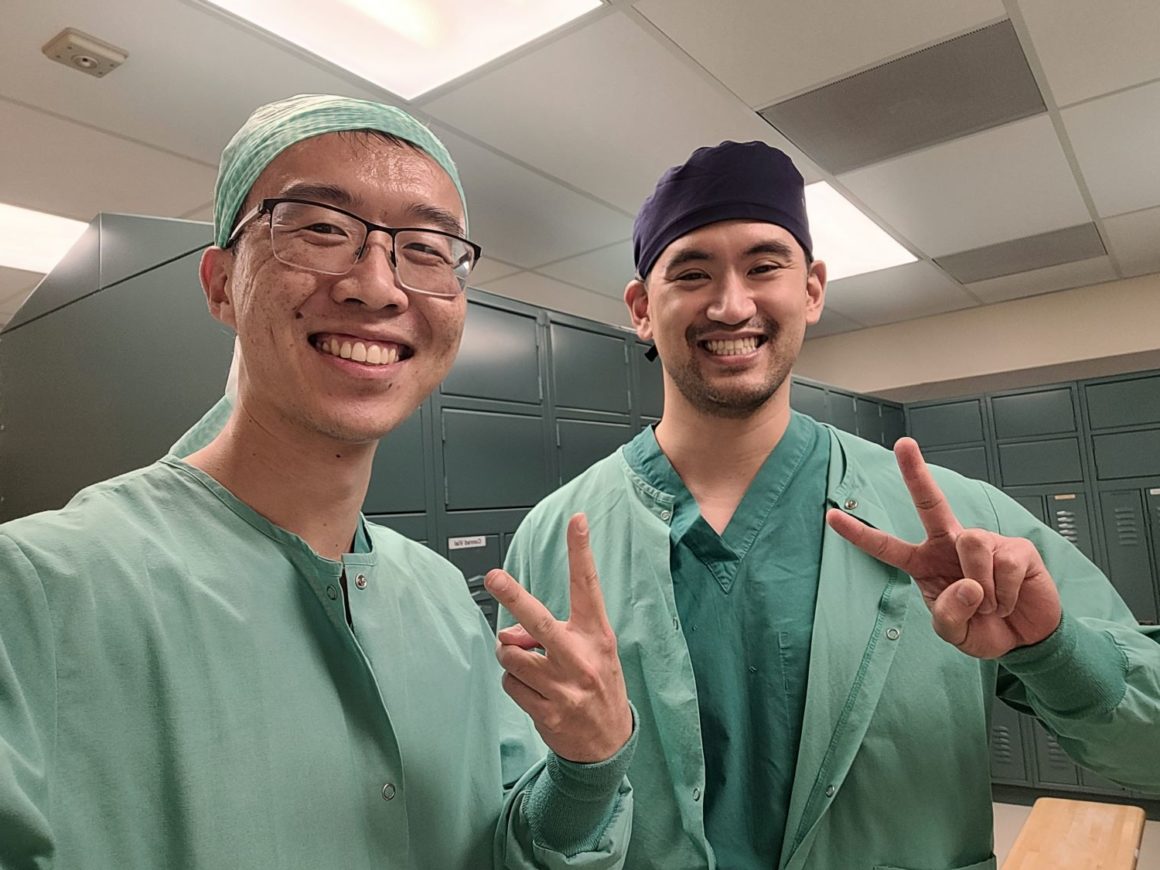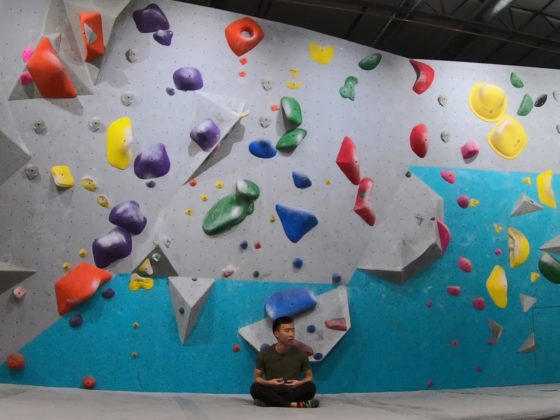Fear of looking stupid, incompetent, or bothersome are the most common reasons why people don’t ask questions. The first answer that comes up when you search “why am I afraid to ask questions in class?” is the fear of judgement :

I still have the fear of asking questions at work. It’s something I am continuously dealing with and improving on.
You can overcome this fear of judgement by sourcing your questions from genuine curiosity. This came to me when I was volunteering at my local hospital.
Volunteering at the local hospital
At the end of last year, I had an opportunity to shadow a college friend who left engineering to become an anesthesiologist.

I was in the operating room with my friend and got to see 5 different types of surgeries. It was an awesome experience and it had really piqued my interest in working in a hospital setting. My friend suggested that I do some volunteering first before fully committing to the career shift.
Fast forward to last week – I started my volunteer shift at a PACU (Post Anesthesia Care Unit). Once I got in, I was given the task of taking the outpatients to their cars. Once I finished that, I occupied myself by getting familiar with the care unit layout. After that, I realized that I had no more tasks left. All the nurses were either busy with the patients or just sitting around.
Journaling about my fear of asking to help
I started to get anxious. It was only an hour into my shift. I’m the type of person who likes to be kept busy – tell me what to do and I’ll go do it If I am not doing something when I feel like I’m supposed to, I start to get fidgety.
I waited about 15 minutes for a task – no nurses asked for my help. I sat down at a desk, pulled out my journal, and started journaling. I asked myself – why was I so hesitant on asking the nurses how I could help out? The patient technician had told me all the nurses were super nice and approachable, and yet…I felt super shy going up.
I wrote that I was afraid to ask the nurses what I could help out with because I felt like I would be too bothersome. I didn’t want to intrude in their patient care activities or what looked like their “break”. I then thought to myself – a volunteer being too bothersome? That’s like saying a volunteer being too helpful.
So I asked myself – is this really what my volunteer experience is going to be like? Me just waiting anxiously for work? No. It couldn’t be.
I reminded myself that I signed up for this volunteer work to learn about working in a hospital. This goal didn’t just involve doing the tasks assigned to me. It also included asking the nurses and doctors about their experiences and personal journeys to working in the hospital.
Genuine curiosity overshadows the fear
Once I had reminded myself of that reason, I felt a sense of ease in approaching the medical staff. I was asking questions based on a genuine curiosity for hospital work rather than trying to “kill time” or awkwardly make conversation. The thought and feelings of looking bothersome or stupid weren’t as pervasive or strong anymore.
If you have a genuine curiosity for something, I believe asking questions becomes much easier because you’re formulating questions you want to ask in order to find the answers you want and need. The need to satiate that curiosity becomes more important than looking bothersome or stupid when asking questions.
On a somewhat related note, the chances of somebody being annoyed at you for asking questions are extremely low. If they give you a judgmental attitude, it’s not a poor reflection of your character. 99% of the people I have worked with have encouraged me to continue to ask questions.










